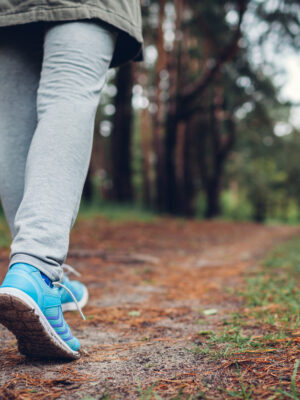Over the past year, I have been practicing the art of rest and what it means to feel fully rested. Although this may sound like an easy journey, it has been challenging for a seasoned yoga and meditation teacher like me. Over the years, I have placed a lot of self-worth on my ability to produce and check tasks off my list. The more tasks I could check off, the better I felt. Can you relate?
I have lived most of my life this way and many times have been rewarded for this behavior. My inner drive has allowed me to reach a lot of personal and professional goals. However, I was in a car accident last fall. I am grateful that no one was hurt, and I walked away without any physical injuries. I chose to see this as a sign. It was time for me to pause, evaluate my priorities, and make some changes.
Because I did not suffer any physical aches or pains right away, I jumped right back into life expecting to function the same way I always had. Time slowly began to reveal other challenges I was facing. I was tired but could not sleep through the night, and I found myself lying awake for 2-3 hours every evening. I had a hard time focusing and was easily distracted. I began to experience more anxiety. It was time to get curious about what was happening inside of me. I could no longer push through. I wanted to thrive again instead of just surviving.
As I reflected on the event, the need to pause and add more rest breaks to my day became clearer to me. Instead of writing down the tasks that needed to be done, I began to build in mini-rest breaks throughout my day.
Rest – One of the Best Ways to Build Resilience
You may be wondering why someone like me who teaches yoga and meditation as part of their job needed to add more rest breaks into their day. You see, in my role as a teacher, I am usually doing. I am in my head throughout the entire practice thinking about how to craft a beautiful sequence and what to say next. In addition to teaching others, I am on my mat doing the movements I am teaching with a camera on my body. There is pressure to perform, and a lot is happening at the same time in my mind and body. I am constantly doing, with very few moments of being.
This realization led me to start doing some hard work on myself. To help me on my journey, I started journaling again. This has been a way for me to let my thoughts and feelings come forward from my heart without any filters. I also started exploring various therapies and connecting with some amazing healers. This has led to some major lifestyle changes. As I have taken care of my physical and mental well-being this past year, I started to understand what happened to me as I slowly progressed from feeling stressed to feeling overburdened and eventually burned out.

Since the accident, I have also had to retrain my thoughts and beliefs around self-worth and productivity. Our society does not celebrate or encourage rest. It is designed for us to believe that we have to be productive to be worthy and that our productivity can only come from us continually doing.
2021 became the year for me to make a shift in my life and prioritize the practice of rest and being present with my thoughts, feelings, and physical sensations. I could not just “get over” the experience I had. For me to move forward in a healthy and healing way, I needed to move through it. To move through something we need clear, steady energy. We need restored energy to do inner work.
“Rest is a catalyst for profound transformation.” Octavia Raheem
What I know from studying the body and healing practices is when the body is out of alignment from over-exertion, energy is wasted. Our mental and physical resources are depleted, and we need to restore harmony and balance before we can move forward. The more imbalanced we become due to overworking and over-exertion, the more we need to value rest as a means to return to a state of well-being.
Rest… An Active Choice
So how do we recover and build resilience with rest? Most people assume that if you STOP doing a task like answering emails or stepping away from your desk, your brain will naturally recover. But just because the work stops, doesn’t mean we are recovering. In my experience, I can stop working, but my mind can spend hours worrying and wrestling with solutions to work problems. Stopping does not equal rest or recovery.
Initially, rest may sound too passive, too soft, and even too basic to be resilient. So, let me ask you this: is it easier for you to be resilient or to rest? Chances are, you’ll identify more quickly with being resilient than you can say you’re well rested. I know that was my truth for a long time and our culture is really good at conditioning us to witness resilience as pushing through, enduring, surviving, toughening out, and choosing mind over matter.
To really rest takes practice. Learning how to slow down and feel comfortable when you rest may take time. Don’t give up! Eventually, your mind and body will enjoy the rest break and you will feel refreshed.
If you are struggling to make time to pause and rest, here are a few ideas to help you strategically stop what you are doing and build in moments of rest.

- Create a tech-free time for part of your day.
- Take a cognitive break every 90 minutes to close your eyes, take some deep breaths, and pause.
- Enjoy a true lunch break.
- Go outside for a walk.
- Read a book for pleasure.
- Connect with a friend.
- Get good sleep.
- Drink a warm cup of tea and look out the window.
- Lay down and rest your physical body for 10-20 minutes without any distractions.
It is so easy to keep chugging along in the hustle and grind of life. Hopefully, you don’t need a wake-up call like mine to make you stop, pause, and remember what nourishes your mind, body, and spirit. Taking time to rest helps us stay engaged with the precious life we have.

